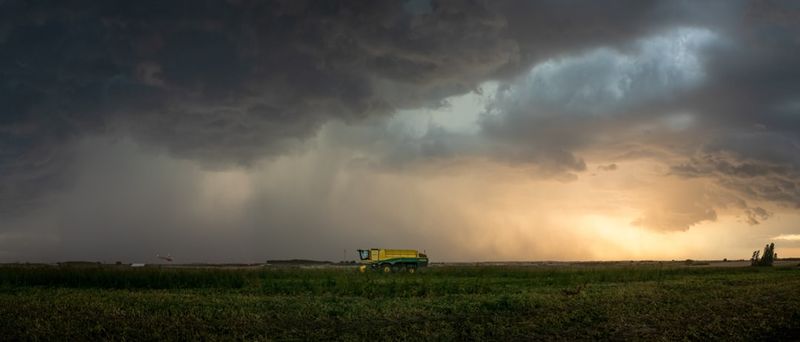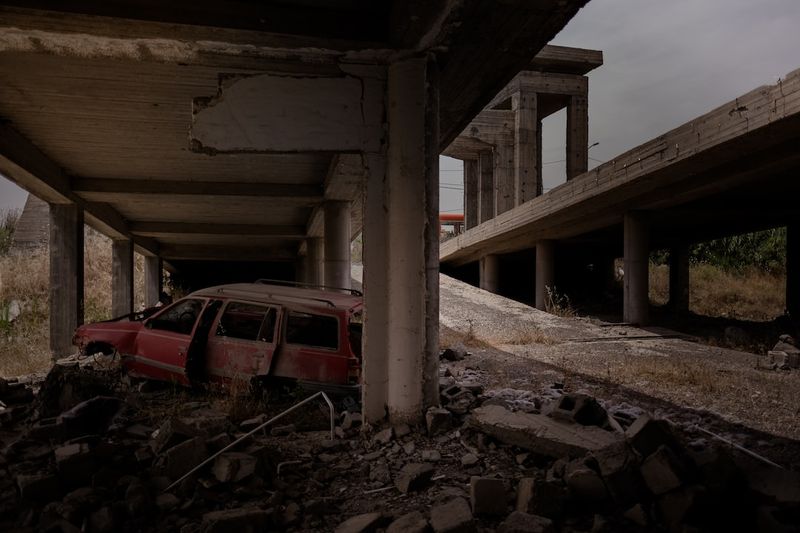Tornado and Severe Storms Hit Greater Montreal Area
Tornado Strikes Mirabel and Severe Storms Cause Road Closures
According to Environment Canada, a tornado touched down in the Mirabel area on Thursday afternoon, accompanied by violent storms that caused the closure of several roads in the metropolitan area of Montreal. Fortunately, no damage or injuries were reported in Mirabel after the tornado passed through. While tornado warnings have been lifted in Quebec, warnings and watches for severe storms remain in effect in several regions near Quebec City, in Mauricie, and in Bois-Francs. Earlier in the day, tornado alerts were issued for Trois-Rivières, Mascouche, Rawdon-Joliette, Laval, Lachute, Saint-Eustache, Saint-Jérôme, and Vaudreuil. It is possible that other areas in southern Quebec were also affected by tornadoes, according to Simon Legault, a meteorologist for Environment Canada.
Impact on Transportation and Infrastructure
The severe storms disrupted operations at Montreal-Trudeau Airport from 3:45 PM to 6:30 PM, leading to delays, cancellations, and diversions of several flights, some of which were redirected to Ottawa airport. The lightning alert within 8 km of the airport caused a temporary halt to operations on the tarmac to ensure the safety of ground personnel, as they are not permitted to be exposed during lightning alerts. This meant that activities such as baggage handling, aircraft refueling, and meal delivery had to be suspended. However, operations resumed gradually as the lightning alert subsided.
In addition to the airport disruptions, the storms also led to the closure of several roads in Montreal due to flooding. Some vehicles were caught on flooded roads earlier, but all motorists were successfully evacuated. The Decarie Highway was closed in both directions between Highway 40 and the Turcot Interchange due to water accumulation, but it reopened an hour later.
The Square-Victoria-OACI metro station experienced water infiltration, leading to its closure from 6 PM onwards. However, metro service was maintained, although trains did not stop at the affected station. The Société de transport de Montréal warned of delays on certain bus routes due to flooding, and drivers were advised to adjust their driving accordingly.
Efforts to Ensure Public Safety and Restoration of Services
Montreal Mayor Valérie Plante took to Twitter to report that the Centre-Sud area was particularly affected by the storms and offered reassurance that emergency municipal facilities were open and ready to provide assistance if needed. She emphasized that city teams were working tirelessly to ensure the safety of residents and minimize damage caused by the heavy rainfall.
Furthermore, Hydro-Québec, the province’s electricity provider, faced significant power outages as a result of the severe weather conditions and ongoing forest fires in the Baie-James area. While power was restored to many affected customers, approximately 330,000 were still without electricity as of 9 PM. Hydro-Québec explained that power outages could be caused by strong winds or vegetation falling on their infrastructure. The restoration of power to all households currently without power could take more than 24 hours, possibly up to 48 hours, as the utility company assesses the extent of the damage visually by patrolling its lines and network. Increased personnel are already working on site to expedite the restoration process.
Philosophical Discussion: Nature’s Unpredictability and Humanity’s Adaptation
The recent tornado and severe storms that have impacted the Greater Montreal area remind us once again of the raw power and unpredictability of nature. Despite our advances in technology and knowledge, we are still at the mercy of natural forces that can disrupt our daily lives and cause significant damage.
This raises philosophical questions about our place in the natural world and our ability to control and mitigate the impact of natural disasters. While we have made strides in understanding weather patterns and developing early warning systems, events like tornadoes and severe storms can still catch us off guard. As we witness the destruction and disruption caused by these natural phenomena, we are reminded of our vulnerability in the face of nature’s power.
Yet, even in the face of adversity, we see humanity’s ability to adapt and come together to overcome challenges. The response of the municipal authorities, emergency services, and utility companies in the aftermath of these storms is a testament to our resilience and capacity for collective action. Efforts to ensure public safety, restore services, and provide assistance to those in need demonstrate our willingness to support one another in times of crisis.
Editorial: Climate Change and Preparedness
The occurrence of severe storms and tornadoes in the Greater Montreal area raises the question of how climate change is contributing to the frequency and intensity of these events. While it is challenging to attribute any single weather event to climate change, scientific evidence indicates that climate change is increasing the likelihood of extreme weather events, including severe storms and tornadoes. Therefore, it is imperative for us to take climate change seriously and take proactive measures to mitigate and adapt to its effects.
This includes investing in infrastructure that can withstand extreme weather conditions, implementing sustainable urban planning strategies, and promoting clean energy alternatives to reduce greenhouse gas emissions. It also requires enhancing early warning systems and disaster preparedness measures to ensure the safety and well-being of all residents.
The recent storms serve as a reminder that we must prioritize climate action and incorporate resilience into our policies and practices. By doing so, we can better protect our communities and minimize the devastating impact of natural disasters in the future.
Advice: Staying Safe During Severe Weather
To ensure personal safety during severe weather events like tornadoes and severe storms, Environment Canada provides the following recommendations:
– If a tornado alert is in effect, seek shelter indoors in the lowest level room, away from windows and exterior walls.
– If you are in a vehicle, mobile home, tent, trailer, or any other temporary shelter, seek refuge in a sturdy building.
– As a last resort, lie down on the ground in a low-lying area and protect your head from flying objects.
– Remain informed by monitoring weather updates and alerts from reliable sources.
– In cases of emergencies that threaten health or safety, call 911 for assistance. For infrastructure-related issues, residents can contact 311.
– Stay connected with vulnerable individuals in your community and offer support during power outages or other emergencies.
By following these guidelines and staying vigilant, we can increase our chances of staying safe during severe weather events.

<< photo by Kacper Staszczyk >>
The image is for illustrative purposes only and does not depict the actual situation.
You might want to read !
- Québec’s Apocalypse: Devastation Strikes the Province
- [Toronto sous l’emprise de tornades et orages violents : la menace plane sur le Grand Toronto]
- Tornades ravageantes frappent Montréal et Ottawa : le coût des dégâts et les mesures de prévention
- Mirabel hit by tornado; tornado alert in Montreal ends
- Environnement Canada publie une veille de tornade : L’urgence de se préparer face aux risques naturels
- “Plea for Help: The Desperate Saga of a Family Forced to…”
- Breaking News: Le Canadien agrees to eight-year contract extension with…
- Breaking News: Authorities on high alert as armed man sought in Lac-Bouchette
- Breaking News: Ilkay Gundogan Set to Reinforce Barcelona’s Midfield in Free Transfer Move
- Labor Dispute: Hydro Ottawa and Union to Restart Negotiations




